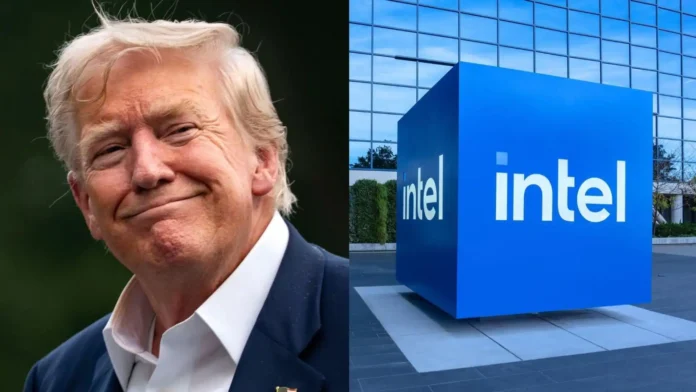The U.S. confirmed a landmark equity agreement with chipmaker Intel. Commerce Secretary Howard Lutnick announced the news, calling it a historic achievement. Moreover, he emphasized that the Intel government deal will strengthen semiconductor leadership and safeguard America’s technological future.
The development followed a tense meeting between Intel CEO Lip-Bu Tan and President Donald Trump. Trump initially demanded Tan resign over his Chinese business ties. However, the discussion ended with a $10 billion settlement benefiting the United States. Consequently, the Intel government deal now reshapes the relationship between Washington and corporate America.
The $10 billion value closely aligns with grants Intel expects from the CHIPS Act. That program funds semiconductor plants across the country. Therefore, the government chose equity over direct subsidies. As a result, the Intel government deal signals a shift toward deeper industrial policy.
Trump also unveiled other steps that reflect growing state involvement. The Pentagon plans to take control of a mining company to secure rare earth magnets. Meanwhile, the government obtained a golden share in U.S. Steel during Nippon Steel’s proposed acquisition. These actions highlight Washington’s expanding role in critical industries.
Semiconductors remain central to the strategy. Chips power essential technologies from smartphones to defense systems. Intel’s challenges have raised security concerns, making federal involvement inevitable. The Intel government deal underscores the determination to ensure chip production remains strong and reliable. Moreover, it highlights the link between security and economic competitiveness.
Industry experts noted the administration’s consistency in this approach. Patrick Moorhead pointed to previous government actions in rare earths and export controls. He added that tariffs or revenue-sharing demands on chipmakers may follow. Furthermore, he suggested Intel could benefit as global designers look for trusted foundries.
The agreement emerged despite Trump’s criticism of Intel’s leadership. He accused Tan of conflicts tied to Chinese-linked firms. Senator Tom Cotton also voiced concerns through a letter to Intel’s board. Nevertheless, the deal went forward, proving both sides saw strategic value in compromise.
Political stakes also weigh heavily on this development. Intel’s new Ohio plant sits in a politically important state. Trump has repeatedly won Ohio, while Vice President JD Vance comes from there. Consequently, the Intel government deal carries significant political as well as economic weight.
For more business updates, visit DC Brief.


